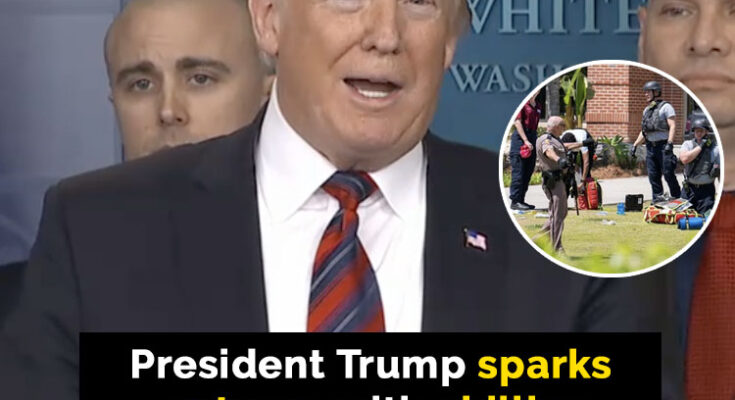On April 17, 2025, tragedy struck Florida State University when a gunman opened fire on campus, killing two individuals and injuring six others. Authorities later identified the suspect as 20-year-old Phoenix Ikner, reportedly the son of a police officer, who is believed to have used his mother’s former service weapon in the attack.
In the immediate aftermath, the nation turned its attention to the White House, where President Donald Trump addressed the incident during a press conference. His comments quickly sparked controversy.
“These things are terrible,” the president began, before pivoting to express his enduring support for the Second Amendment. “The gun doesn’t do the shooting, the people do,” he said. Trump emphasized that he has “always protected” gun rights and reiterated, “I have an obligation to protect the Second Amendment.”
When asked to clarify his remarks, particularly his comment about needing to “see what happens,” he responded, “Only in terms of what happens as far as legislation’s concerned, this has been going on a long time.” He added, “I know the area very well, I know the school very well. And we’ll have more to say about it later.”
The reaction to Trump’s statement was swift and polarizing. Critics accused him of downplaying the human cost of the tragedy in favor of defending gun rights. One user on X (formerly Twitter) wrote, “’Sorry about the dead people, but I love guns.’ Their ashes are not even cold yet. Completely disgraceful and unchristian.” Another said, “Trump’s response to the FSU shooting is callous, deflecting with ‘guns don’t shoot, people do’ ignores the tragedy and the need for real solutions.”
Others pointed out the inconsistency in logic. “This rarely happens in countries that don’t have guns. All of them have people,” someone wrote, while another added bluntly, “The gun literally does the shooting. He is a moron.”
Meanwhile, Tallahassee Police Chief Lawrence Revell confirmed that the shooter, Ikner, was injured during the confrontation with authorities. He was taken to the hospital with serious but non-life-threatening injuries. The motive behind the attack remains unknown, and officials have yet to release the names of the victims.
The Florida State University community is now grappling with the shock and grief of another violent episode in a place meant to foster safety, learning, and growth. As vigils begin and families wait for answers, a national conversation continues to swirl around the intersection of gun rights, policy, and the repeated trauma of school shootings.
Public response remains divided. Some call for immediate legislative action, while others defend the president’s stance on constitutional protections. Still, many are left asking the same question that has followed similar tragedies for years: how many more lives must be lost before meaningful change is made?
As the investigation unfolds and families mourn, the political fallout and emotional weight of the incident are sure to echo far beyond the halls of FSU.



